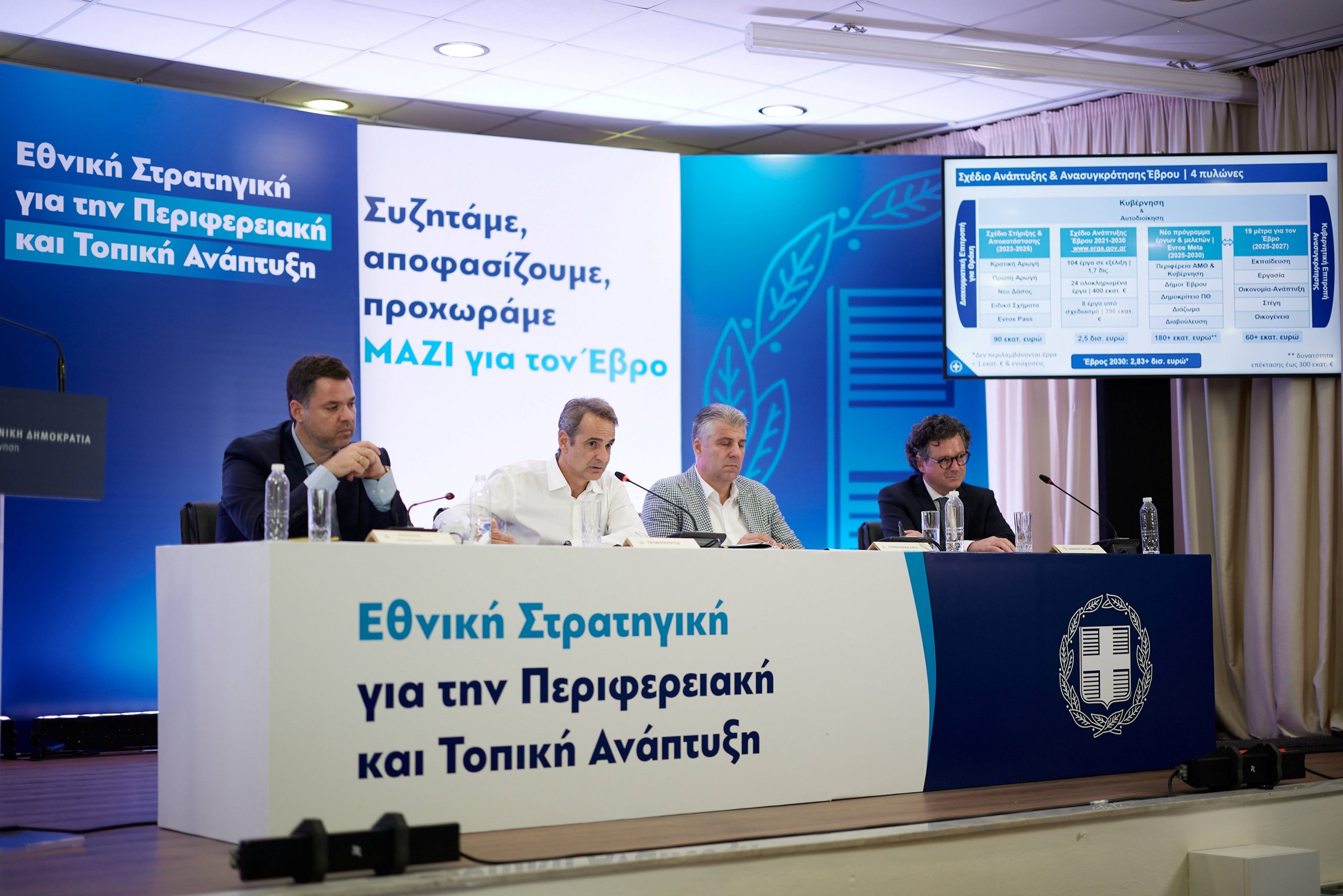Greek Prime Minister Kyriakos Mitsotakis arrived in the country’s extreme northeast corner on Thursday to play up the development potential of Evros border prefecture, beyond just the increasingly important – in geo-strategic terms – port city of Alexandroupolis.
Evros prefecture borders with European Turkey to the east, mostly divided by the Evros (Maritsa) River, and with EU member-state Bulgaria to the north.
Speaking from the north Evros border city of Orestiada, Mitsotakis pointed to the verdant region’s strategic position and the role it can play in the future reconstruction of Ukraine once the war with Russia is over.
Alexandroupolis has dramatically boosted its geostrategic importance after military supplies and materiel were increasingly offloaded to its port, instead of being shipped by vessel through the Dardanelles and Bosporus due to Turkish reluctance. Once off-loaded, cargos were transport north to southeast Europe and beyond by lorry or train. Moreover, a new off-shore FSRU terminal a few kilometers from Alexandroupolis’ port is only days away from becoming operational and the prefecture is now a significant east-west crossroad for gas pipelines.
Mitsotakis was joined by a bevy of ministers, who also spoke at a dedicated event in Orestiada, along with local stakeholders and office-holders.
He also promised continued state support to revitalize areas devastated by a massive wildfire last year, referring to the “Evia model” after another region, northern Evia Island, which was scorched by a multi-front wildfire there years earlier. The wildfire in Evros, centering on the Dadi Forest, was the biggest in Europe at the time of the conflagration. Along these lines, he announced a three-year deferment in property taxes in the affected region (Soufli, Orestiada, Didimotycho), along with subsidies and bonuses to attract residents from elsewhere in Greece.
More funding will also be funneled to the region’s main university, Democritos.
He also directly referred to the standing problem of illegal migration flows plaguing the prefecture, as it’s a favorite land route for Turkey-based migrant smugglers trafficking people towards the EU. As such, he reminded of the crisis of February and March 2020, when Turkish ministers impudently announced that law enforcement in that country would not stop third country nationals exiting its borders towards Greece, essentially giving the nod to third country nationals on Turkish territory to assembly and try and enter Greece in any manner they could.
This crisis “fundamentally changed the policy of the European Union overall in terms of the manner with which Europe guards its borders,” he said.



